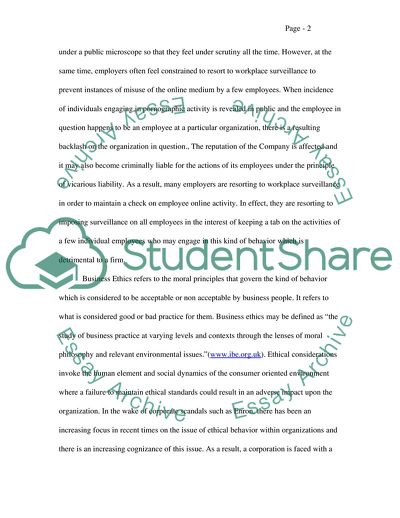Cite this document
(Workplace Surveillance Essay Example | Topics and Well Written Essays - 1750 words, n.d.)
Workplace Surveillance Essay Example | Topics and Well Written Essays - 1750 words. Retrieved from https://studentshare.org/human-resources/1710009-business-ethics-position-paper
Workplace Surveillance Essay Example | Topics and Well Written Essays - 1750 words. Retrieved from https://studentshare.org/human-resources/1710009-business-ethics-position-paper
(Workplace Surveillance Essay Example | Topics and Well Written Essays - 1750 Words)
Workplace Surveillance Essay Example | Topics and Well Written Essays - 1750 Words. https://studentshare.org/human-resources/1710009-business-ethics-position-paper.
Workplace Surveillance Essay Example | Topics and Well Written Essays - 1750 Words. https://studentshare.org/human-resources/1710009-business-ethics-position-paper.
“Workplace Surveillance Essay Example | Topics and Well Written Essays - 1750 Words”. https://studentshare.org/human-resources/1710009-business-ethics-position-paper.


